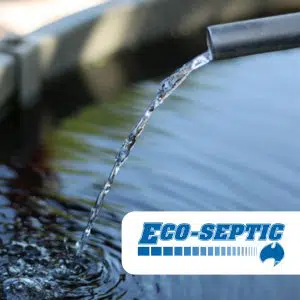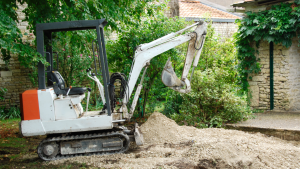What are the Two Types of Wastewater?
Two Types of Wastewater
Wastewater is any water that has been used and discarded, whether from households, industries, or agriculture. Wastewater contains various pollutants, including chemicals, pathogens, and nutrients, that can harm human health and the environment if not properly treated before discharge. There are two main types of wastewater, as follows:
1. Domestic Wastewater
Domestic wastewater, also known as sanitary wastewater or sewage, comes from households, offices, and public facilities such as schools, hospitals, and restaurants. Domestic wastewater is generated from activities such as bathing, washing clothes and dishes, flushing toilets, and disposing of human waste. Domestic wastewater is typically high in organic matter, suspended solids, and pathogens, which can cause waterborne diseases such as cholera, typhoid, and dysentery.
Domestic wastewater is typically collected through a network of pipes and transported to a wastewater treatment plant for treatment. At the treatment plant, the wastewater undergoes several treatment processes, including screening, grit removal, sedimentation, and biological treatment, to remove pollutants and make the water safe for discharge into the environment. The treated wastewater can be used for irrigation, industrial processes, or discharged into a receiving water body such as a river or ocean.
2. Industrial Wastewater
Industrial wastewater is generated from industrial activities such as manufacturing, mining, and power generation. Industrial wastewater contains a wide range of pollutants, including heavy metals, organic compounds, and chemicals, that can be harmful to human health and the environment if not properly treated. Industrial wastewater can also contain high levels of nutrients, such as nitrogen and phosphorus, that can cause eutrophication and harm aquatic life in receiving water bodies.
Industrial wastewater is typically collected through a separate network of pipes and transported to a wastewater treatment plant or an on-site treatment facility for treatment. The treatment process for industrial wastewater depends on the type and concentration of pollutants present in the wastewater. Some common treatment processes include physical-chemical treatment, biological treatment, and membrane filtration. The treated wastewater can be reused in industrial processes, discharged into a receiving water body, or used for irrigation or non-potable purposes.
Conclusion
Wastewater is a major environmental and public health issue that requires proper management and treatment to prevent pollution and protect human health and the environment. The two main types of wastewater, domestic and industrial, have different characteristics and require different treatment processes to remove pollutants and make the water safe for discharge. By properly managing and treating wastewater, we can ensure a sustainable water supply for future generations.
Eco-Septic is a Sydney based manufacturer and specialises in commercial wastewater systems of various shapes and designs. We can provide fast and free quotes relevant to your commercial wastewater needs, all while keeping in mind individual spending capabilities. Contact us today for a fast quote at 1800 808 135 or visit us at www.ecoseptic.com.au.
We cover all Sydney suburbs as well as the regions of South Coast, Snowy Mountains, Southern Highlands, Riverina, Blue Mountains and Hawkesbury, Laguna, North and Mid North Coast, Bateman’s Bay, Nowra, Mallacoota, Narooma, Balmoral, Cobargo, Glenn Ines, Avondale, Glenmore, Mogo, Tarago, Torrumbarry, Albury, Faulconbridge, Maraylya, Sherbrooke, Strathdickie, Little Hartley, Linden, cattail, Bowen Mountain, Murwillumbah, Kyogle, Bryon Bay, Lismore, Evan Heads, Yamba, Grafton and surrounding areas.
Related Posts
- The Ultimate Guide to Maintaining Your AWTS System
- If Your House Has A Septic Tank, Do You Have To Pay A Sewer Bill?
- What Are The Sources Of Wastewater?
- Is Wastewater Treatment sustainable?
- How the wastewater treatment process works
- Our guide to looking for a greywater wastewater pump
- Revolutionizing Waste: AWTS Systems Pave the Way for Sustainable Living in Australian Homes
- Understanding Grey Water Recycling Systems





